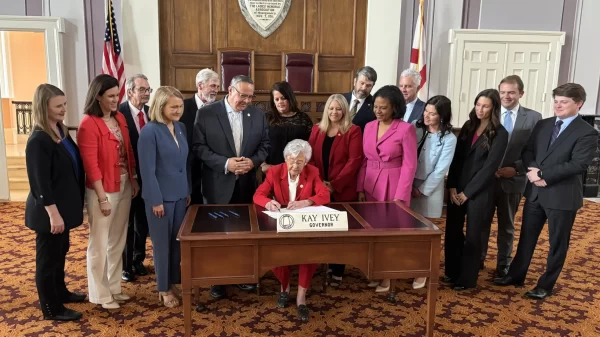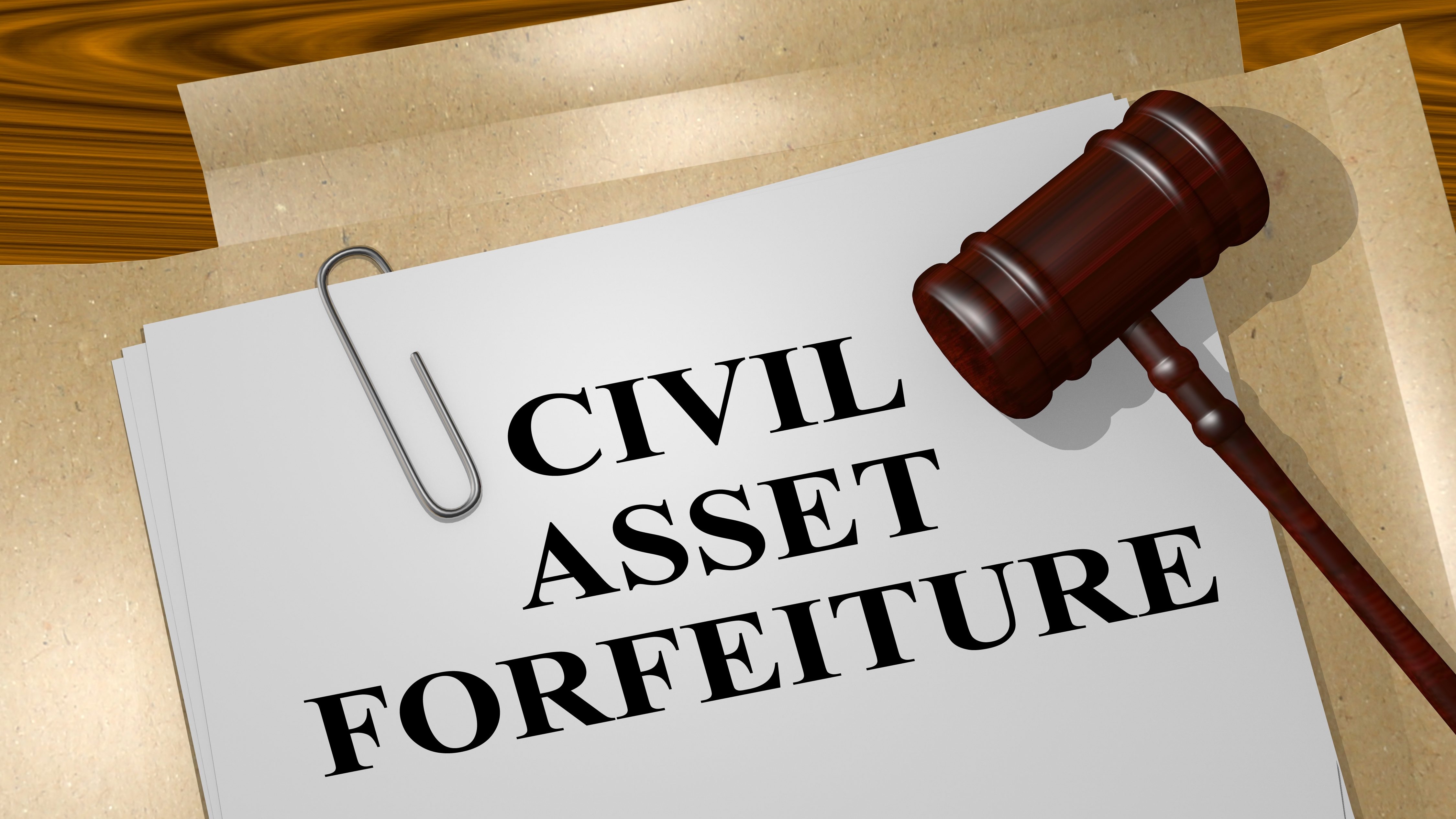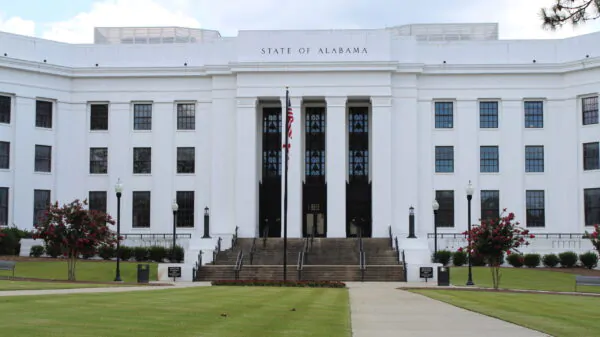On Thursday, the Alabama House passed Senate Bill 191 that would increase transparency around civil asset forfeiture in the state. It now moves to Gov. Kay Ivey’s desk for approval.
“SB 191’s passage is a good first step toward bringing more transparency to Alabama’s civil asset forfeiture practices,” said Robyn Hyden, executive director of Alabama Arise, in an official statement. “This bill will help shine some needed light on this process, and we hope the governor signs it.”
Alabama Arise is a nonprofit, nonpartisan coalition of congregations, organizations and individuals promoting public policies to improve the lives of low-income Alabamians. One of their 2019 issue priorities is to reform civil asset forfeiture in Alabama.
Civil asset forfeiture is a practice that allows law enforcement to seize private property they allege has been involved in criminal activity and subsequently keep, sell or destroy it. Under Alabama’s civil forfeiture laws, law enforcement agencies need only probable cause to seize property.
“Alabama’s current civil asset forfeiture practices allow too much room for abuse,” Hyden said. “Hundreds of Alabamians lose cash, cars and other property under this practice every year. Many of them are never convicted of a crime – or even charged with one. And many people can’t afford to hire a lawyer to challenge these seizures in court.”
With deep roots in common law, civil forfeiture was originally used as a way to incapacitate organized crime groups.
“But today, aided by deeply flawed federal and state laws, many police departments use forfeiture to benefit their bottom lines, making seizures motivated by profit rather than crime-fighting,” the ACLU writes in a web page titled “Asset Forfeiture Abuse.”
This new bill, sponsored by Sen. Arthur Orr, R-Decatur, would establish the Alabama Forfeiture Accountability and Integrity Reform Act. Under FAIR, the attorney general would establish and maintain a case tracking system and searchable public website with details about the seizure and property seized.
Barry Matson, executive director of the Alabama District Attorneys Association, said the bill adds to the Alabama Forfeiture Accountability System, which was created by district attorneys and law enforcement earlier this year to track and report on asset forfeitures in the state.
“Alabama district attorneys, ALEA chiefs of police, county commissions and sheriffs created the nation’s most comprehensive database for asset forfeiture,” Matson said. “We are excited to now have those progressive efforts codified into law.
“In this bill, the district attorneys also sought the additional measure to publicly identify all asset forfeiture dollars and expenses by separating them into audited accounts with detailed individual line-items. This new measure will create unprecedented transparency that will identify the source and expenditures of all asset forfeiture monies.”
“This system will [provide information on asset forfeiture information] and, we hope, put to rest the fears of some people that asset forfeiture is being abused,” Matson said.
The Southern Poverty Law Center weighed in on the passing of FAIR.
“It’s not enough for the actors who profit from civil asset forfeiture to simply report what they take from Alabamians,” said Emily Early, staff attorney for the SPLC Action Fund. “That’s because the practice of civil asset forfeiture is, at its core, wrong.”
The SPLC is pressing Alabama lawmakers to ensure a criminal conviction prior to property seizure.
“Should Alabama end the practice in future years, the state will join 16 others across the country in requiring criminal convictions to forfeit most or all types of property,” Early said. “Across the nation, legislators, mobilized citizens and impacted people are demanding that the government be focused on keeping communities safe, not policing for profit.”
To Hyden and Alabama Arise, FAIR is not the final step for protecting Alabamians against civil asset forfeiture abuse. A good start? Yes. A total problem-solver? Not quite.
“The original version of this bill showed the path to real reform,” Hyden said. “It would have required a felony conviction before property became subject to forfeiture in most cases. It also would have required the state to meet a higher burden of proof in connecting property to a crime. And it would have mandated a detailed, publicly searchable database laying out the full scale of seizures in the state.”
“These reforms are still needed, and we’ll continue to fight for them,” Hyden concluded. “We thank all of the Alabama Arise members and other advocates across the state who helped SB 191 win legislative approval. And we appreciate their determination to keep pushing for the comprehensive change that the people of our state need and want.”
The bill passed both chambers unanimously.




















































